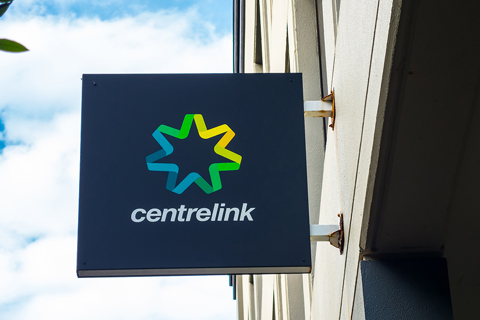Refunding Centrelink after a personal injury compensation settlement

When a claimant or plaintiff in a personal injury claim receives compensation, whether that be by way of a court award of damages or by agreement to settle with the respondent of the claim, there are certain amounts that may need to be taken out of the settlement or paid back by the claimant. Examples of this include NDIS payments, Medicare payments and income protection insurance and private health insurance payments.
In this article, we discuss the requirement, if any, to refund Centrelink after a personal injury claim payment has been made.
Why do I need to repay my Centrelink benefits after my personal injury claim is settled?
One of the “heads of damage” or types of compensation that a claimant may be entitled to in a personal injury compensation claim is “economic loss”. This is compensation for income lost due to the injury or illness. If that claimant has been receiving Centrelink benefits due to their injury, then it is likely that any compensation they receive under the economic loss category will be a payment that covers their lost income over that period of time.
The reason Centrelink benefits may need to be refunded is to ensure that claimants don’t receive double compensation for their lost income (i.e an economic loss payment as part of the personal injury settlement as well as the Centrelink benefits).
Will my future Centrelink benefits be affected?
Generally, where a person is unable to work into the future as a result of their claim-related injuries, this will also be accounted for in the economic loss damages (that is, the payment will often be for past economic loss and a calculation of future economic loss). Therefore, for similar reasons to the requirement to refund past benefits, there will be some impact on future Centrelink benefits.
How are Centrelink refunds and future benefits calculated after a personal injury claim?
In order to understand what Centrelink payments need to be repaid or reduced, once Centrelink is notified of the settlement agreement, it will calculate a ‘preclusion period’. For lump sum compensation payments, the preclusion period will generally begin at the date of the injury.
The preclusion period is a period during which you are not entitled to Centrelink payments. If you have received Centrelink payments during the preclusion period, then this will likely need to be repaid. If the preclusion period includes an amount of time after the payment of the settlement amount, then this may mean that the Centrelink benefits payable to you in the future could be affected.
The preclusion period is calculated by a formula prescribed by legislation.
If you would like to understand how your personal injury claim settlement may impact your Centrelink benefits, Centrelink provides a helpful estimation tool for lump sum settlement agreement payments. To use this, you will need to provide the following information:
-
The proposed amount of the lump sum payment of compensation; and
-
Any amount of the lump sum that has already been paid to you in respect of the claim;
-
Whether any periodic payments (of compensation) have been received through your personal injury claim; and
-
The date of the injury.
How will the refund be paid to Centrelink?
If IM Lawyers is representing you during your personal injury claim, we will discuss this requirement with you while you are considering settlement offers, and we assist you in completing all the necessary paperwork.
Once a settlement agreement is reached, a notification will need to be sent to Centrelink so that the preclusion period can be calculated. Once the respondent (the other party, for example, the insurance company paying your claim) is notified of the refund amount calculated by Centrelink, they will pay the required refund directly to Centrelink before making payment to you. That will, therefore, reduce the amount payable to you.
Centrelink will then discuss with you directly, any impact on your Centrelink benefits moving forward. It is important that you ensure to update your lawyer and Centrelink if any of your personal details (e.g. address or contact information) change.
Get help from a personal injury lawyer
If you would like advice about a personal injury claim and any obligations you may have to refund Centrelink, contact one of our personal injury lawyers for a free initial consultation. It costs you nothing to find out where you stand, and we run personal injury claims on a ‘no win, no fee’ basis.
Contacting IM Lawyers
This article is of a general nature and should not be relied upon as legal advice. If you require further information, advice or assistance for your specific circumstances, please contact IM Lawyers.

